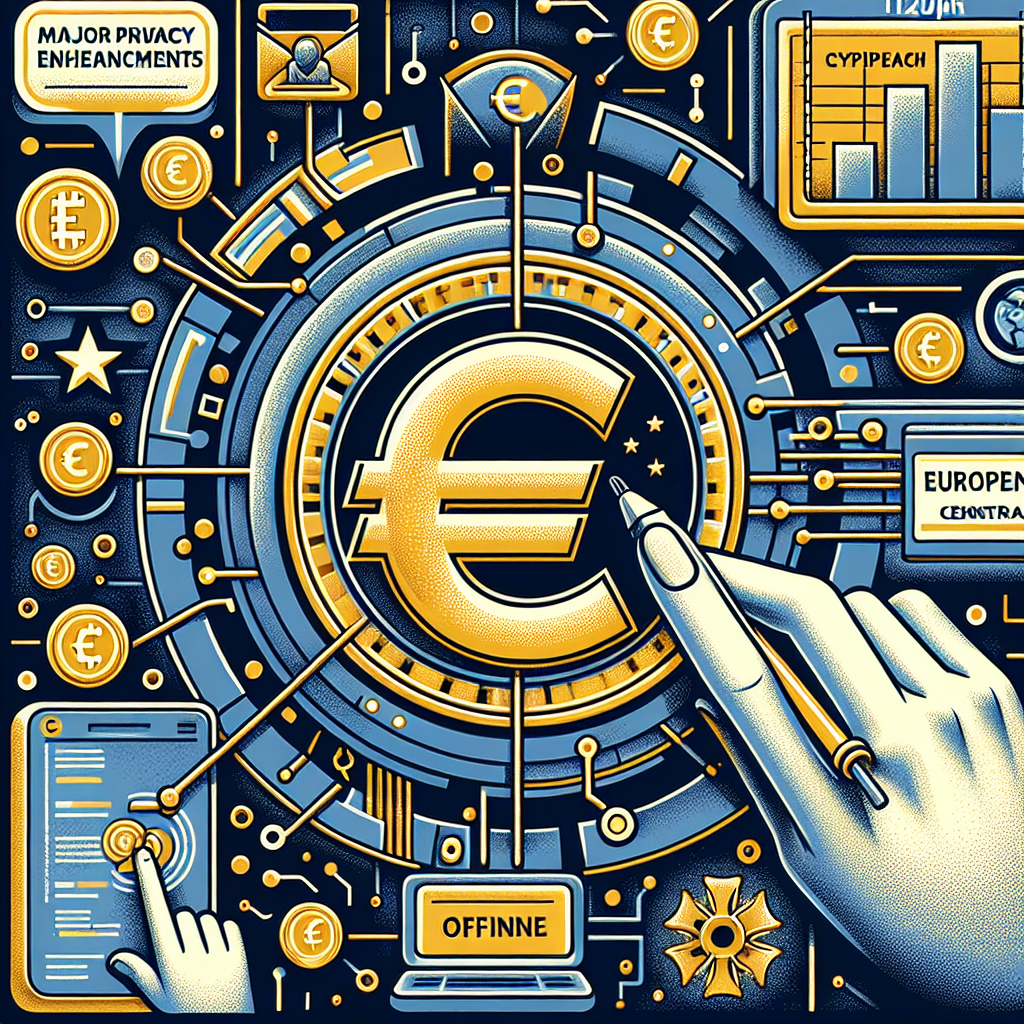Altcoins
European Central Bank Announces Major Privacy Enhancements and Offline Capabilities for Digital Euro in First Progress Report

The European Central Bank (ECB) has recently made public its first progress report on the ongoing development of a Central Bank Digital Currency (CBDC), marking a significant step towards the digitization of the euro. This report, published on June 24, presents a strategic outline of how the digital euro could be integrated into the current financial ecosystem, with a strong focus on ensuring user privacy and supporting offline transactions.
The ECB’s initiative to develop a digital euro comes as part of a broader move by central banks worldwide to explore digital currencies. As the digital landscape evolves, the ECB is positioning itself at the forefront of financial innovation, aiming to modernize transactions while addressing the critical challenges of privacy and accessibility.
Privacy has been a paramount concern in the development of the digital euro. The ECB’s report highlights several technical safeguards, such as pseudonymization, advanced encryption methods, and the use of hashing functions, aimed at securing user data. These measures ensure that while transactions remain transparent and traceable by authorities to prevent fraud and money laundering, individual privacy is protected. The ECB has made it clear that any commercial use of consumer financial data by payment service providers would require explicit consent from the users, emphasizing the bank’s commitment to privacy and data protection.
In addition to privacy, the ECB is exploring innovative solutions to enable offline transactions for the digital euro. The report details how such transactions could be executed directly between two parties without needing an intermediary, using advanced payment devices like smartphones and smart cards. These devices could be equipped to synchronize transactions with the CBDC blockchain once online connectivity is restored, enhancing the digital euro’s usability even in areas with poor internet service.
The ECB’s approach to developing the digital euro is inclusive, involving a wide range of stakeholders through the establishment of the “Rulebook Development Group.” This group is tasked with drafting the CBDC’s regulatory and technical frameworks by the end of 2024. By engaging with service providers, infrastructure developers, and the public, the ECB aims to create a digital currency that addresses the needs and concerns of all potential users, ensuring broad acceptance and effectiveness.
However, the move towards CBDCs has not been without its critics. Some express concerns over privacy and the potential for state surveillance, questioning the advantages of CBDCs over existing digital currencies like stablecoins. High-profile skepticism, such as that from former U.S. President Donald Trump, reflects broader fears about the impact of government-controlled digital currencies on individual freedoms and privacy.
Despite these challenges, the ECB’s progress report marks a critical step forward in the journey towards a digital euro. By prioritizing privacy, supporting offline transactions, and engaging a wide range of stakeholders, the ECB is laying the groundwork for a digital currency that could revolutionize the financial landscape. As the project advances, the digital euro’s potential to enhance transaction efficiency, ensure greater financial inclusion, and strengthen the euro’s position in the global digital economy becomes increasingly apparent.
-

 Press Releases12 months ago
Press Releases12 months agoGaming Technologies of the New Time!
-

 Altcoins4 months ago
Altcoins4 months agoBitcoin Declines Below $80K: deVere CEO Nigel Green Remains Bullish on Long-Term Outlook Following Strategic U.S. Bitcoin Reserve Announcement
-

 Bitcoin9 months ago
Bitcoin9 months agoBitcoin Surges Past $64K as SEI and POPCAT Lead Daily Crypto Gains on September 25
-

 Altcoins3 months ago
Altcoins3 months agoCalls for Enhanced Discussion on Bitcoin as Brazil’s Reserve Asset: A Move Towards ‘Internet’s Gold’
-

 Press Releases1 year ago
Press Releases1 year agoEvo Exchange: Redefining the Decentralized Exchange Landscape
-

 Press Releases10 months ago
Press Releases10 months agoCODE, a Newly Born Project Brings Decentralization Back to the Main Menu
-

 Press Releases1 year ago
Press Releases1 year agoGolden Cobra: Pioneering Real Utility and Sustainability in the Meme Coin Space
-

 Press Releases1 year ago
Press Releases1 year agoGUA Meme Coin: Pioneering a Zero-Risk Investment Model and Century-Long LP Locking Commitment




